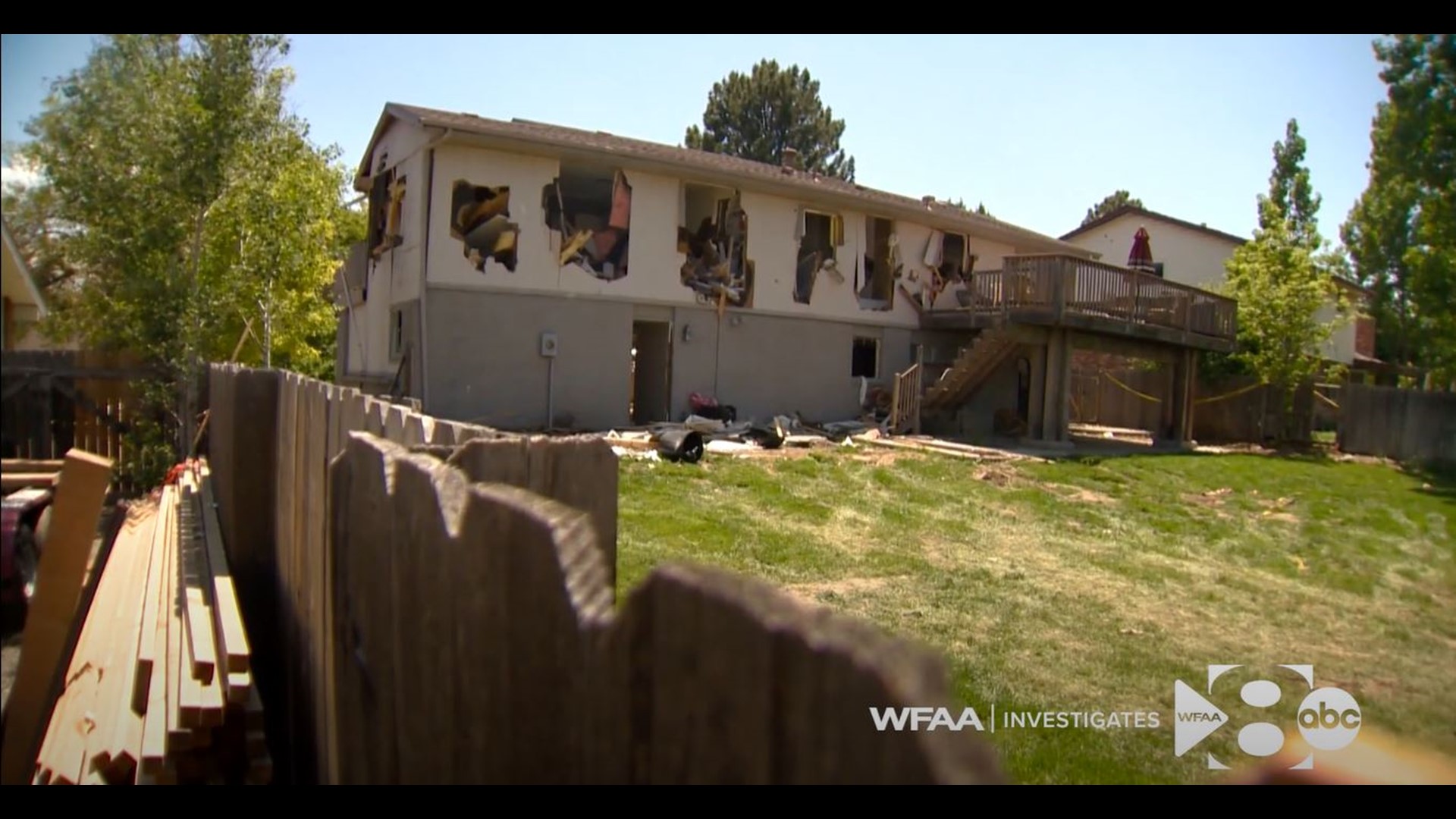ENNIS, Texas — Mike and Jackie Self returned from a vacation to see widespread damage after U.S. Marshals cornered a fugitive hiding in a home they had leased out.
“If you had walked into this house after it was done, it looked like a war zone,” Mike Self told WFAA.
The fugitive hid in their Ennis property and refused to leave, which spurred law enforcement to shoot 14 tear gas missiles into the house.
After a multi-hour standoff, lawmen eventually entered the home and made an arrest, but not before damaging nearly every door and window in the home.

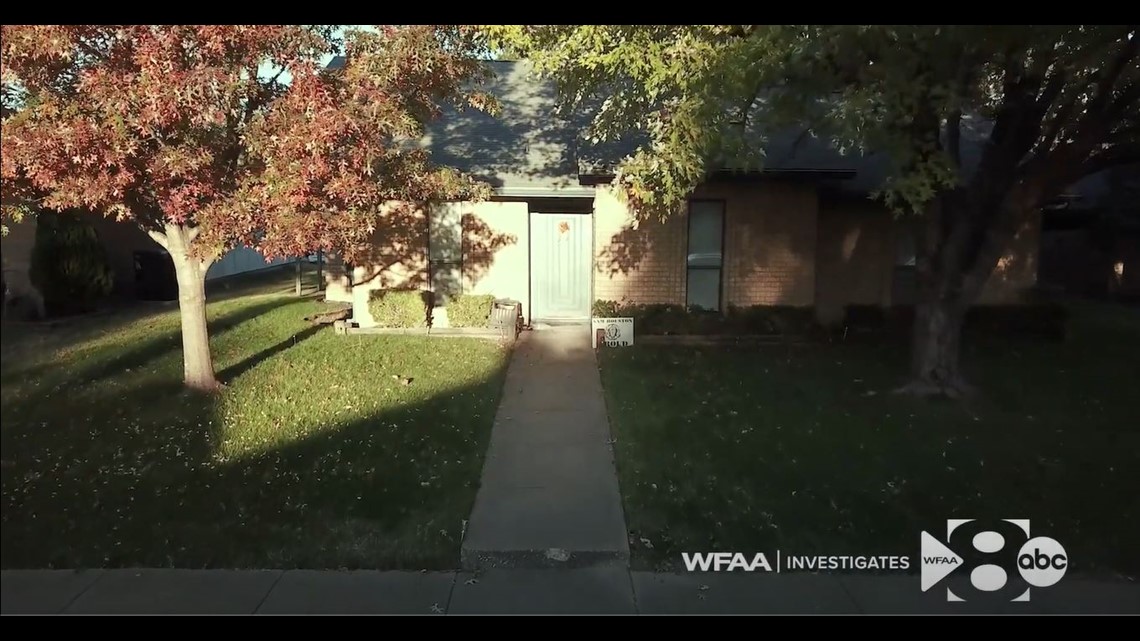
“It looked like something from Syria after it was done,” Mike Self recalled.
The Selfs soon learned that their insurance would pay for only a fraction of the damage. They filed a claim a year ago with the federal government to be made whole but haven’t heard back.
WFAA has found that Mike and Jackie Self are among a number of property owners who rarely get fully compensated because federal and state governmental entities claim immunity from damages in law enforcement operations.
In the case of Ennis, the damages occurred as a result of a “no-knock” raid.
It’s when law enforcement enters a home without prior notice, often forcefully, because they fear a suspect may be dangerous or believe evidence may be destroyed.
When damage occurs, law enforcement agencies may claim immunity under the old English legal concept of “sovereign immunity,” which means the king could not be sued or prosecuted.
Federal and state agencies have made governmental immunity claims to shield law enforcement and other agencies from huge financial losses and to also ensure they’re not hamstrung when protecting the public.
All happening as the number of “no-knock” raids goes up.
They have increased from 3,000 in 1981, to an estimated 50,000 annually, according to an Eastern Kentucky University study.
And property owners – though completely innocent of any crime – may be left high and dry, WFAA has found.
RELATED: Got a tip? Tell us here.
WFAA focused on the police powers used in three unique cases in Texas and Colorado. In the three cases involving two families and a business owner, WFAA found their property was severely damaged or destroyed at the hands of law enforcement and received little or no compensation.
Incidents like these may only continue.
That’s according to a Texas attorney who won a 40-year-old landmark court case after police allowed a family’s home to burn down. He warned WFAA that despite state and federal Constitutional rights to adequately compensate property owners, the protection has eroded as federal and state judges have often sided with law enforcement.
“If you're taking their property and you're not paying them for it, you're not doing a very good job as a government,” Houston attorney Michael Lamson told WFAA.
'It looked like a war zone'
Mike Self told WFAA he planned to retire prior to the raid. Now, due to the cost of the property damage, his plans are on hold.
“Financially we’re too far behind for me to retire the way I wanted to,” Self said.
“I’m almost believing that I’m not going to see anything out of it,” Self said. “I feel like I’m going to get screwed and that’s just the way it is.”

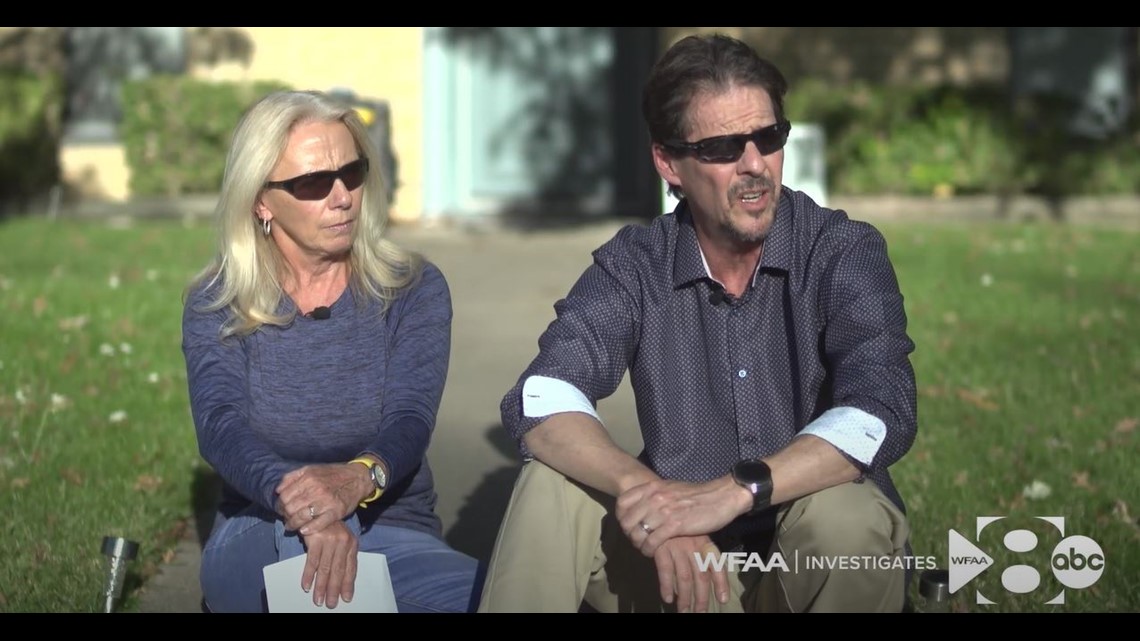
The Selfs have been long-time residents of Ennis, a small town some 40 miles south of Dallas.
Mike has been a teacher at Ennis High School for 15 years, and Jackie is a retired art teacher. Both have also taught martial arts in Ennis for years.
They leased out a home - a property they hoped would support their combined retirement.
But in February of 2019, their plans were dashed.
A fugitive stopped by to visit a family renting the Self’s property. U.S. Marshals learned the fugitive was inside the home and showed up to make an arrest thinking he may be dangerous.
But the fugitive barricaded himself inside, and SWAT was called.
Mike and Jackie Self were on vacation and learned about the standoff when a neighbor called them.
“It was like a five-to-six-hour standoff,” Jackie recalled.
Lawmen shot 14 long-range tear gas missiles into the house, Mike said.

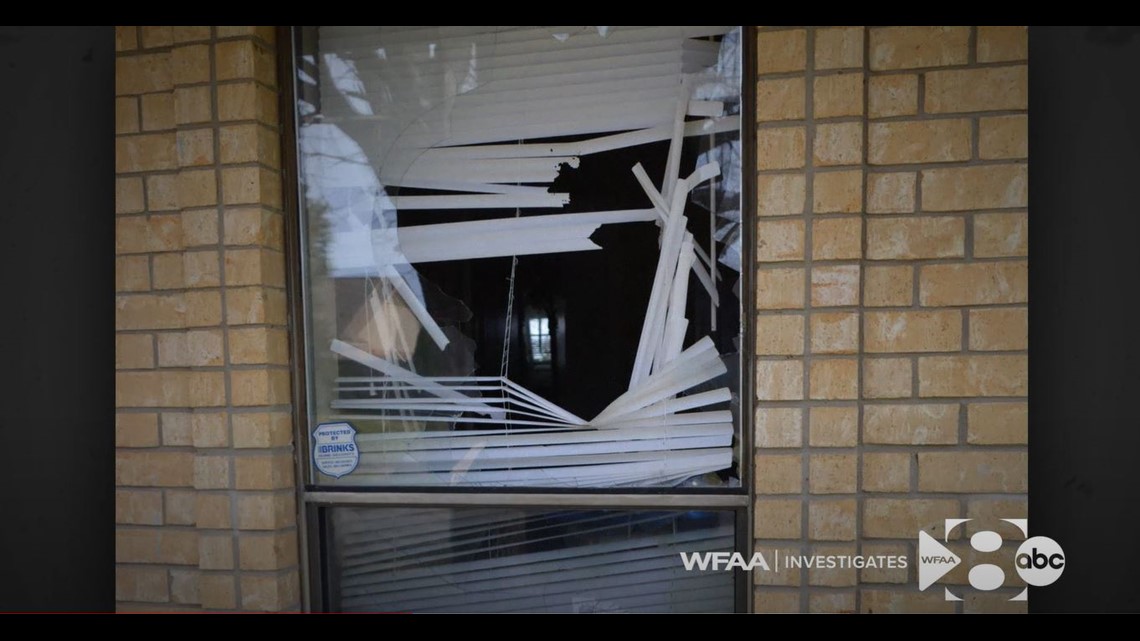
“He didn’t even emerge from the house, which is kind of stunning considering how much tear gas they shot into our house,” Mike said. “My attorney said it’s enough to clear Texas Stadium.”
Police eventually entered the home and arrested the fugitive.

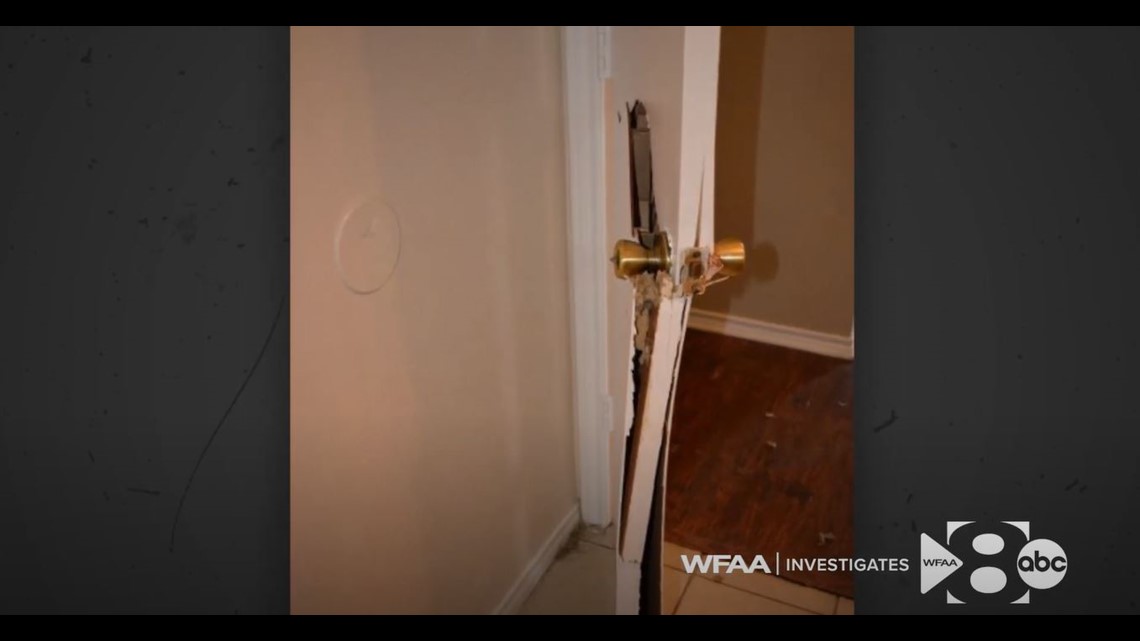
Besides the shattered windows and broken doors, the couple replaced walls that were impaled with tear gas missiles. They also replaced carpets and even insulation in the attic.
The home’s air system also had to be replaced.

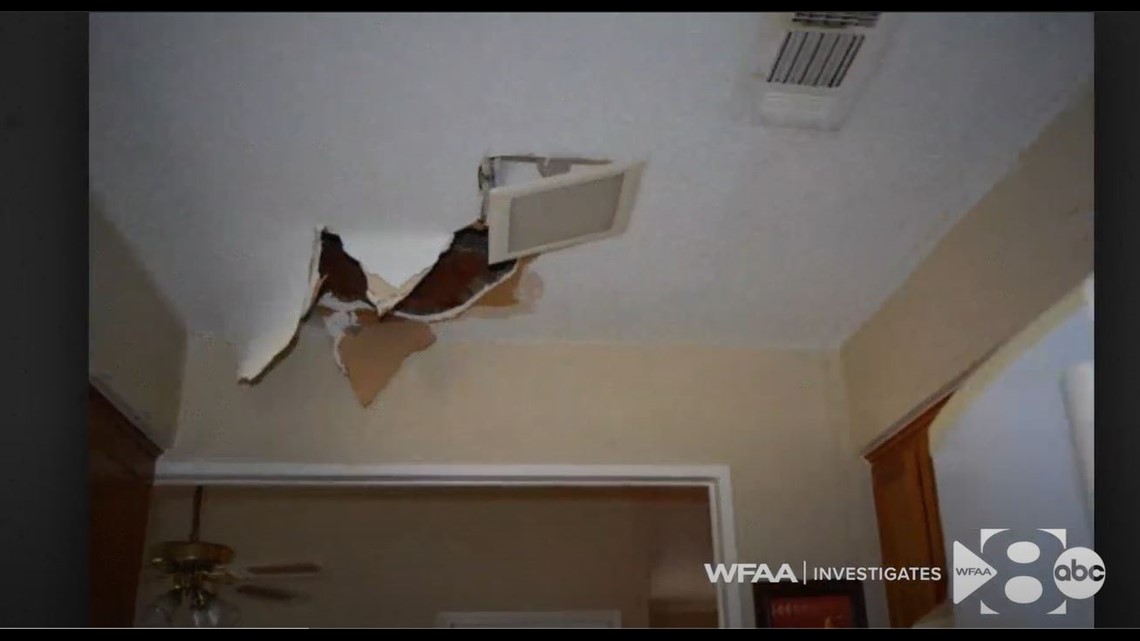
In all, according to their estimates, the damages amounted to some $25,000.

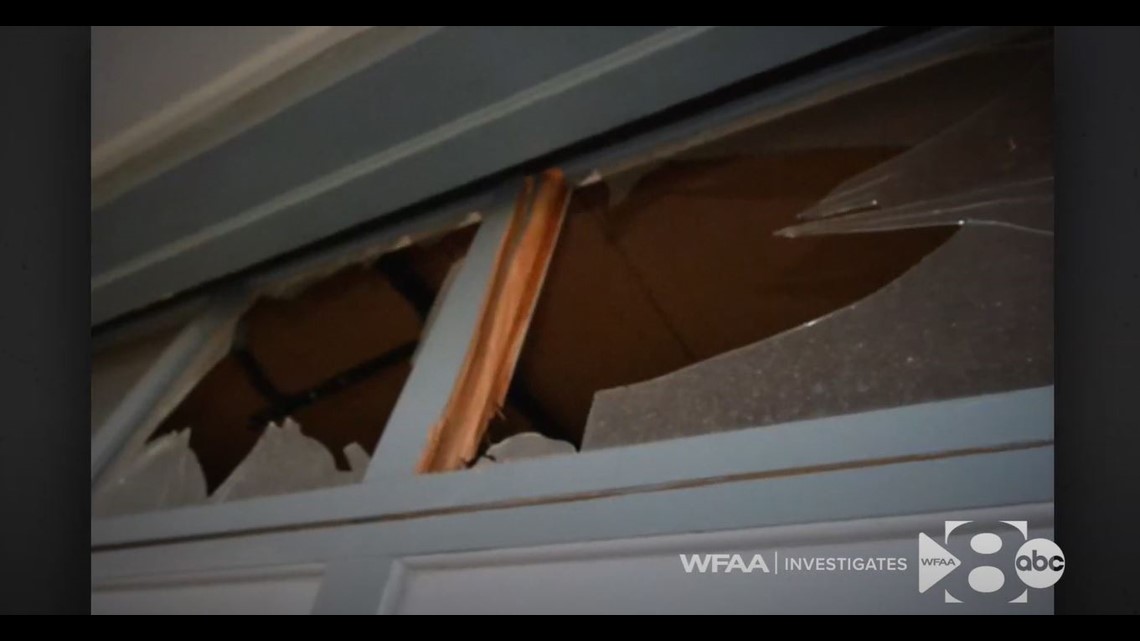
They initially were confident that their home insurance policy would cover the damage. However, they were surprised after they filed a claim.
“The insurance company said it was an act of government and that they would not pay for it,” Jackie Self said.
The couple ended up paying for the damages on their own, and after going back and forth with their insurance company they received nowhere near the amount needed to cover the damages.
“They cut us an $11,000 check, but after the appreciation and the deductible it was about an $8,000 check,” Jackie Self said.
They’re still awaiting a final response from the federal government after filing a claim a year ago.
Police powers and sovereign immunity
In the Selfs’ situation, you’d think "you break it, you fix it."
Not necessarily with law enforcement or other governmental agencies.
Police often claim governmental immunity, despite damaging the property of innocent citizens.
The immunity helps protect taxpayer-funded entities like police departments and governmental agencies from huge financial losses.
But WFAA has found – as part of a multi-part series – that a growing number of Texans have been stymied by governmental entities citing “sovereign” or "governmental immunity.” As a result, individual land and property owners - and others such as patients suffering malpractice in public hospitals – are limited or unable to file lawsuits or gain compensation from governmental entities, WFAA has found.
So, if law enforcement or other governmental entities damage your property, their liability is limited.
And as in the case with Mike and Jackie Self, insurance companies rarely come close to fully reimbursing citizens for their losses.
Despite filing a claim for damages like the couple did with the U.S. Marshals, governmental compensation may be doubtful.
The last option is to lawyer up, but Craig Patty’s story makes you want to think twice.
'The DEA destroyed my truck'
Craig Patty, a North Texan, once operated a trucking company, but in 2011 he hired a driver that would ultimately upend his life.
At the time, Patty did not know the driver was also an informant with the U.S. Drug Enforcement Administration.
According to federal court filings, the DEA instructed that driver – without Patty’s knowledge - to pick up a drug load in the Rio Grande Valley, then bring the load to Houston to help identify Zeta cartel members and later make arrests.

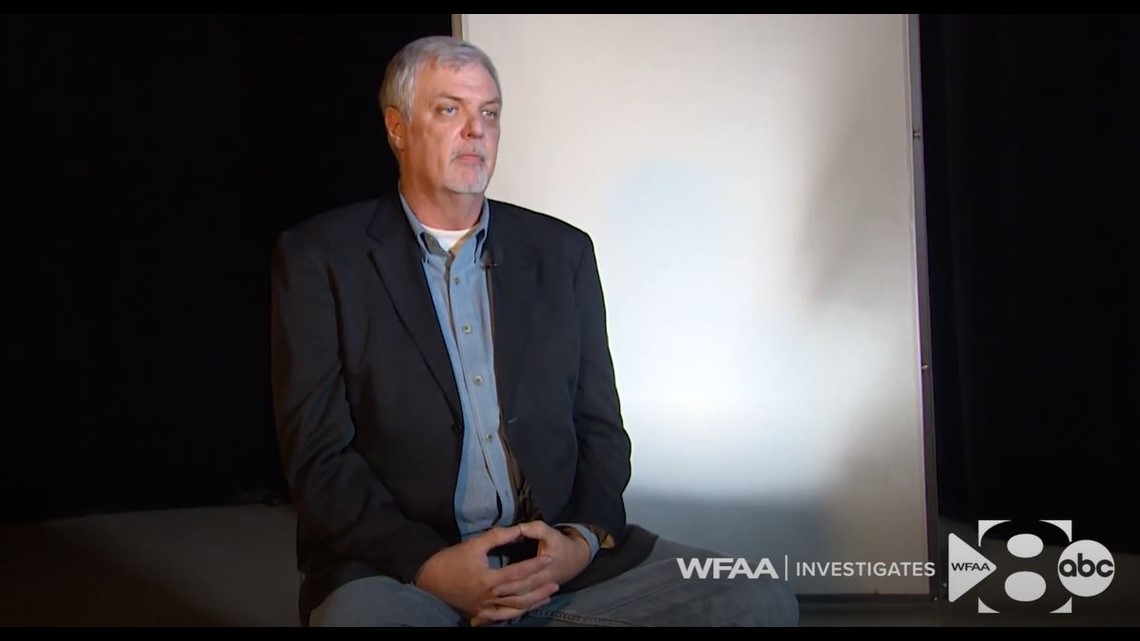
But the cartel was a few steps ahead. Members stormed the truck in Houston, shot and killed Patty’s driver, and got into a shootout with police.
Patty’s truck was severely damaged, with bullet holes sprayed throughout the 18-wheeler.
“The cartel had plans of their own. It was just mayhem,” Patty told WFAA. “I saw bullet holes, damages on the right side, the fuel tank. And body matter was everywhere. My driver was shot eight times in the cab.”
The DEA declined to pay to repair Patty’s truck, and for months even refused to return it, claiming it was evidence in the murder and drug case.
Without the truck, Patty’s business was handicapped, as he only had two trucks.
He lost an estimated $250,000, factoring in business interruption.

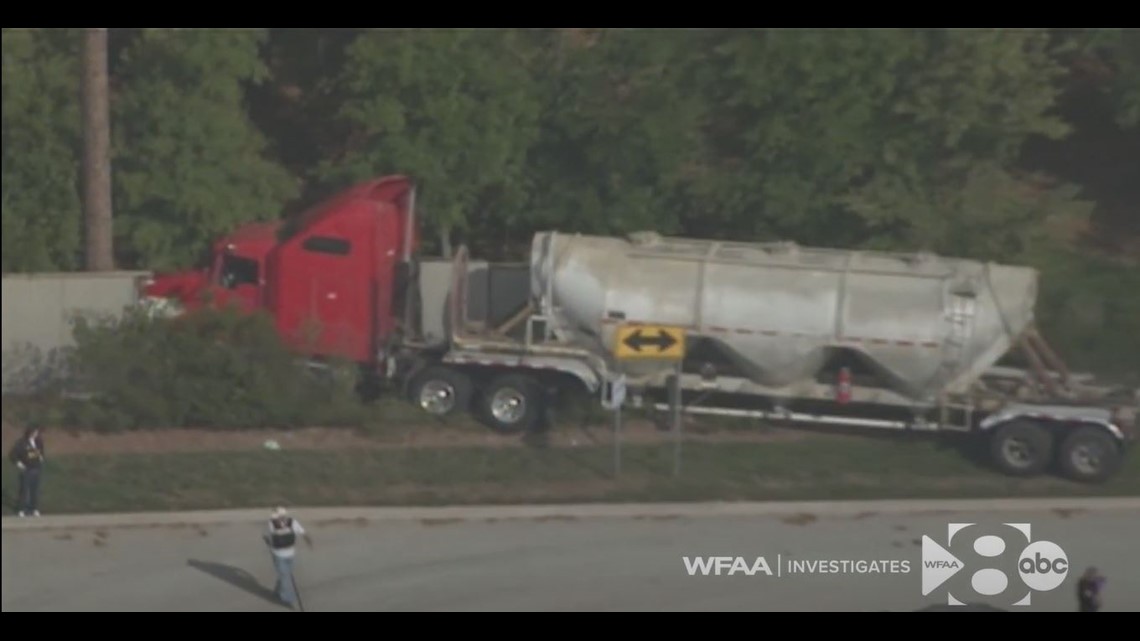
When insurance wouldn’t cover the loss, Patty initially sued for nearly $3 million and lost. In his suit, he argued that the DEA violated his Constitutional rights when: “The government took their property for public use without just compensation…”
A federal judge, however, found otherwise in a summary judgment. The judge ruled that law enforcement powers were used for the “public good” and that the government wasn’t liable.
After seven years of litigation, and a series of legal setbacks, Patty ultimately gained $75,000 through the claims process.
“My case was denied in the federal court system all the way to the United States Supreme Court,” Patty said.
“You can only sue the king as much as he allows you to sue him,” referring to governmental claims of “sovereign immunity.”
However, law enforcement hasn’t always been able to claim such wide immunity.
'If they’re destroying their property and not paying them for it, they’re not doing a very good job as a government'
In 1980, attorney Michael Lamson won a landmark court case in Houston surrounding police powers and "sovereign immunity."
A family’s house was allowed to burn down as police tried to recapture three escaped convicts barricaded inside, according to the court findings.
“They decided to shoot expired tear-gas canisters inside the home, which were nothing more than incendiary devices,” Lamson told WFAA.

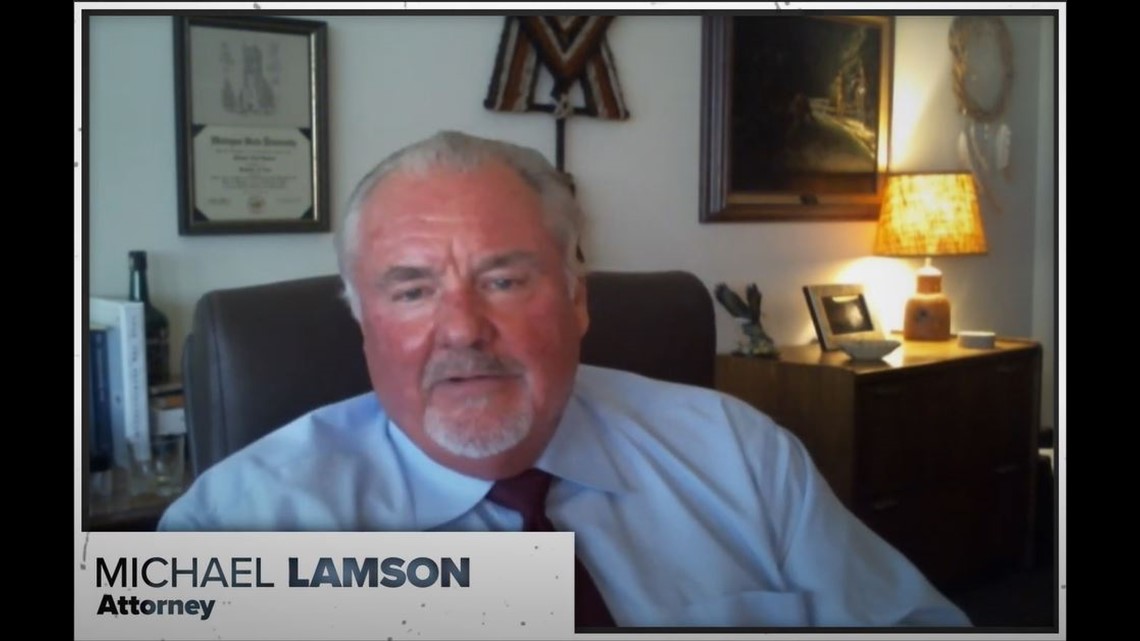
Houston police discharged the incendiary material into the home with the intent to start a fire, Lamson said. And when Houston firefighters arrived, the police prevented them from putting it out, court records say.
The police and City of Houston argued in the lawsuit that it “was excused from making compensation” for the home because “the destruction of the property as a means to apprehend escapees is a classic instance of police power exercised for the safety of the public.”
Lamson, however, won his case after it reached the Texas Supreme Court.
He argued that U.S. and Texas constitutions have protections for citizens, compensating them if the government destroys or takes their property.
The Bill of Rights even reads that private property should not be taken for public use without adequate compensation.
“It was a claim for the destruction of property, and governmental immunity does not shield the City of Houston,” Lamson said. “The law to compensate people for property destroyed for public purpose predates the Magna Carta.”
However, Lamson said protections have eroded. Federal and state judges recently have often sided with law enforcement.
“You’ve got judges who have gotten much more conservative when it comes to compensating plaintiffs,” Lamson said.
A Denver-area property owner still wants to take his chances and has asked the U.S. Supreme Court to weigh in.
All for a suspect
Leo Lech just ended up on the wrong side of a judgment.
In 2015, his rental property was practically blown up by Greenwood Village Police because a shoplifter fled from Wal-Mart and barricaded himself inside the property.
Some of Lech’s family were left on the street after the police severely damaged his property.

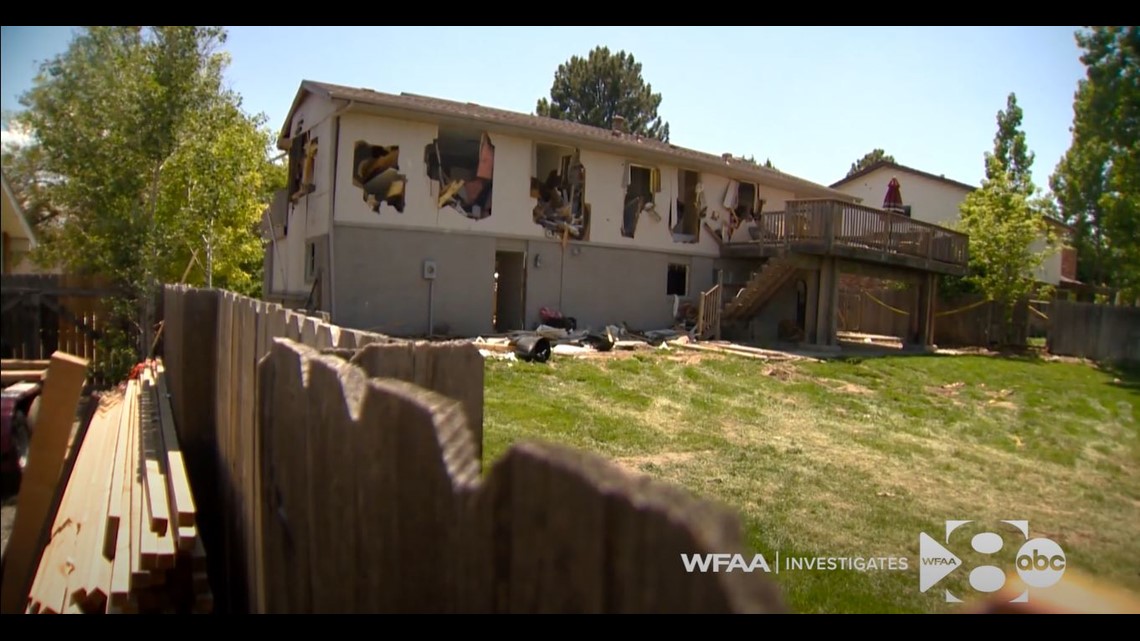
A federal appeals court sided with the city, so they’re liable for none of the damage.
The U.S. Court of Appeals for the 10th Circuit ruled that their decision may seem “unfair,” but “does not signal to police they may act with impunity to destroy property…” It concluded, however, that police can’t always be “burdened with the condition of paying damages.”

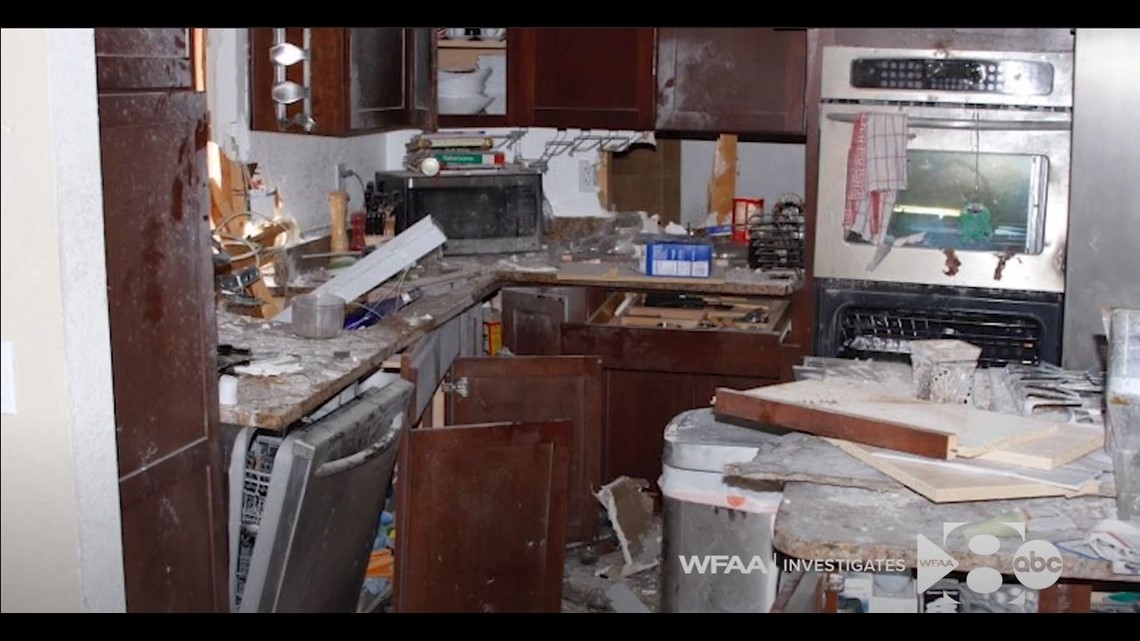
Lech told WFAA he was shocked by the ruling.
“We find it unbelievable that something like this could legally happen in the United States,” Lech said.

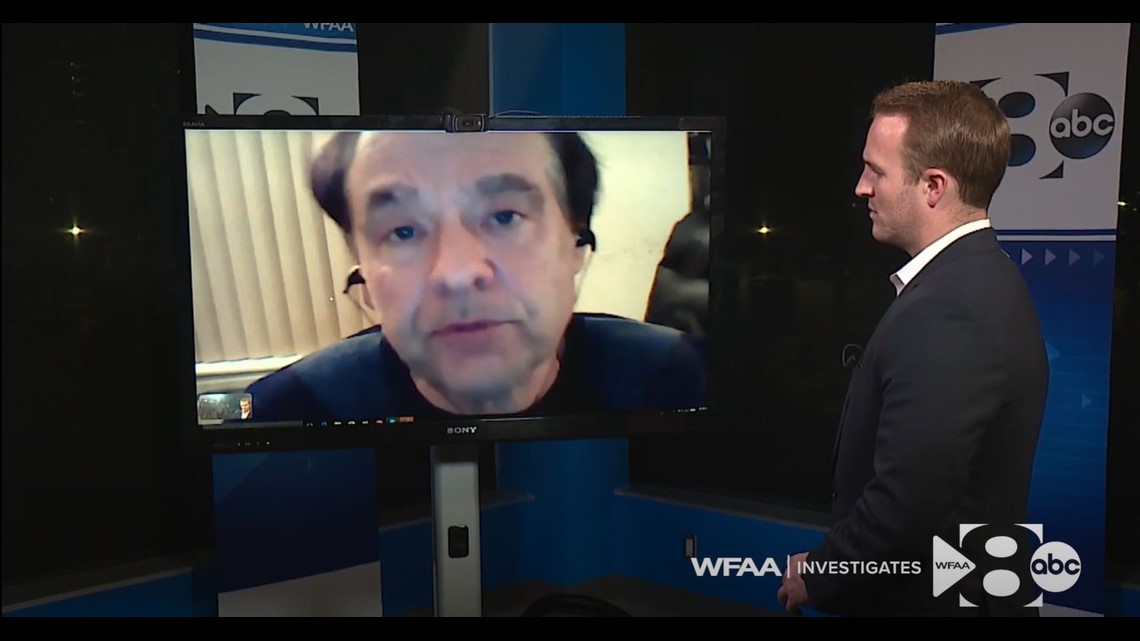
Lech told WFAA he wants the U.S. Supreme Court to look at his case — a longshot, but something he finds important.
“The Supreme Court has to hear this case,” Lech said via Skype. This can’t keep happening, rendering families homeless and them walking away is fundamentally wrong.”
Back in Ennis, Mike and Jackie Self wait their chance at being made whole. They haven’t sued and don’t know if it’s worth it.
The biggest question Mike has, how can you predict or be prepared when SWAT comes banging down your door?
“How can you know?” Mike Self told WFAA. “You can’t. You just can’t."

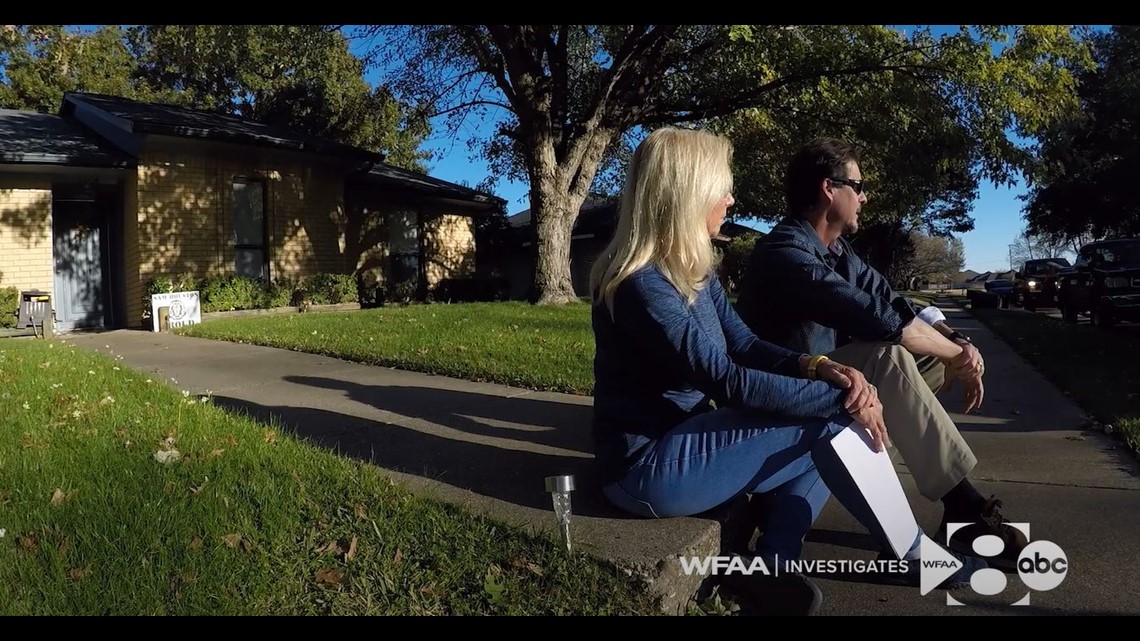
More from WFAA Investigates:
- 'I'm scared every day': Correctional officers, inmates say Texas prisons botched COVID-19 response
- He's not unemployed, but someone filed for benefits in his name. Where are your tax dollars going?
- Videos show long-term caregivers failing to properly wear masks while caring for 92-year-old woman
- Cops 'believed' he was a felon and put him in jail. They were wrong, and we helped fix it

